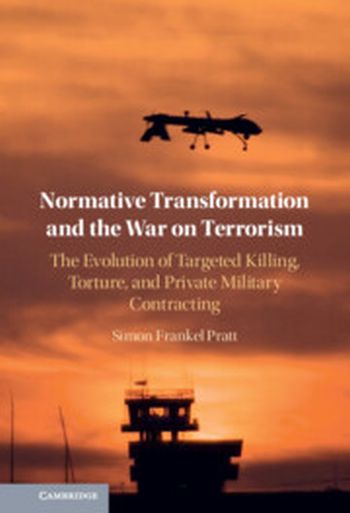We will be closed from 5pm Thursday 17th April for the Easter Bank Holidays, re-opening at 8.30am on Tuesday 22nd April. Any orders placed during this period will be processed when we re-open.

Pratt investigates the potential erosion of prohibiting assassination, torture, and mercenarism during the US's War on Terrorism. In examining the emergence and history of the US's targeted killing programme, detention and interrogation programme, and employment of armed contractors in warzones, he proposes that a 'normative transformation' has occurred, which has changed the meaning and content of these prohibitions, even though they still exist. Drawing on pragmatist philosophy, practice theory, and relational sociology, this book develops a new theory of normativity and institutional change, and offers new data about the decisions and activities of security practitioners. It is both a critical and constructive addition to the current literature on norm change, and addresses enduring debates about the role of culture and ethical judgement in the use of force. It will appeal to students and scholars of foreign and defence policy, international relations theory, international security, social theory, and American politics.